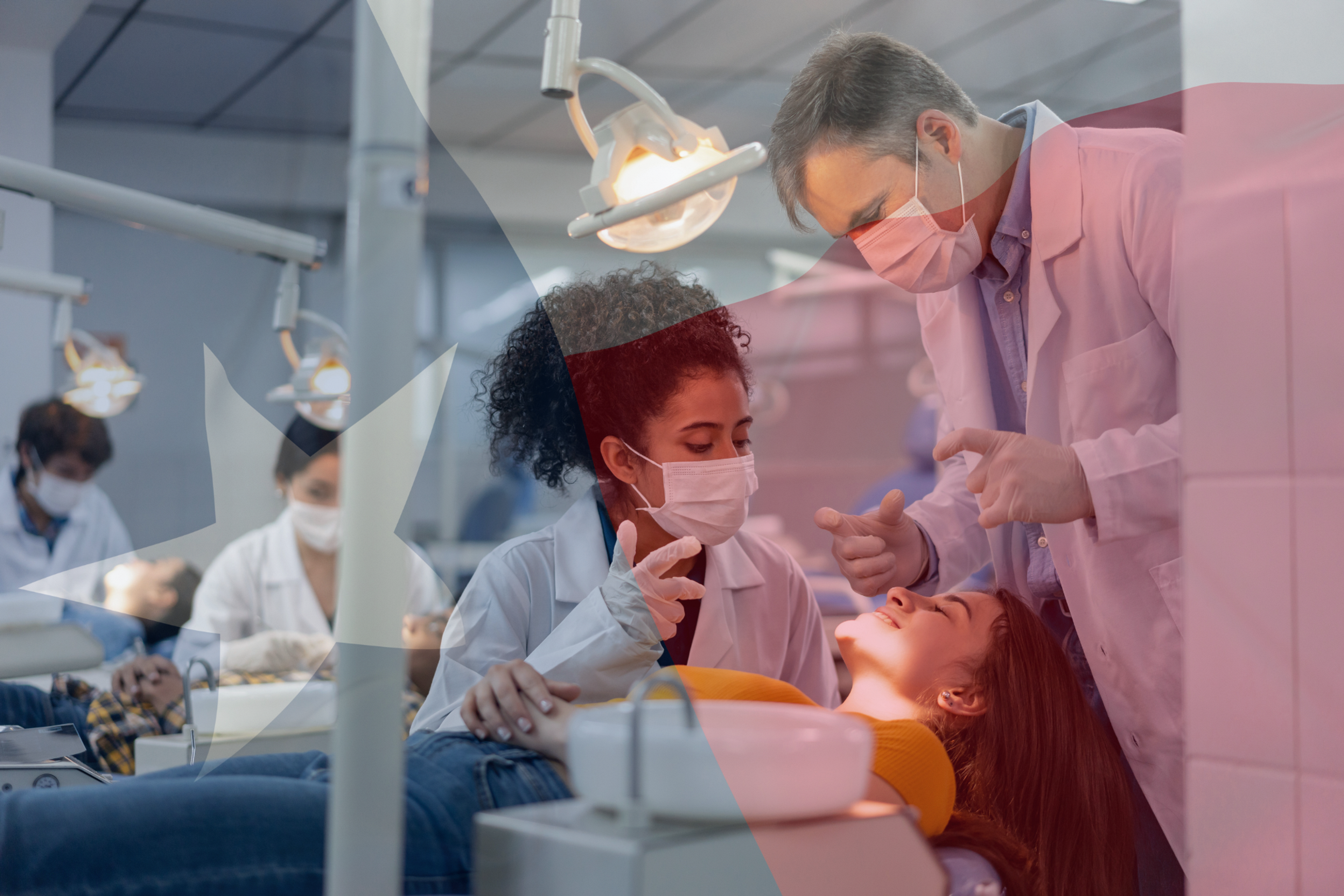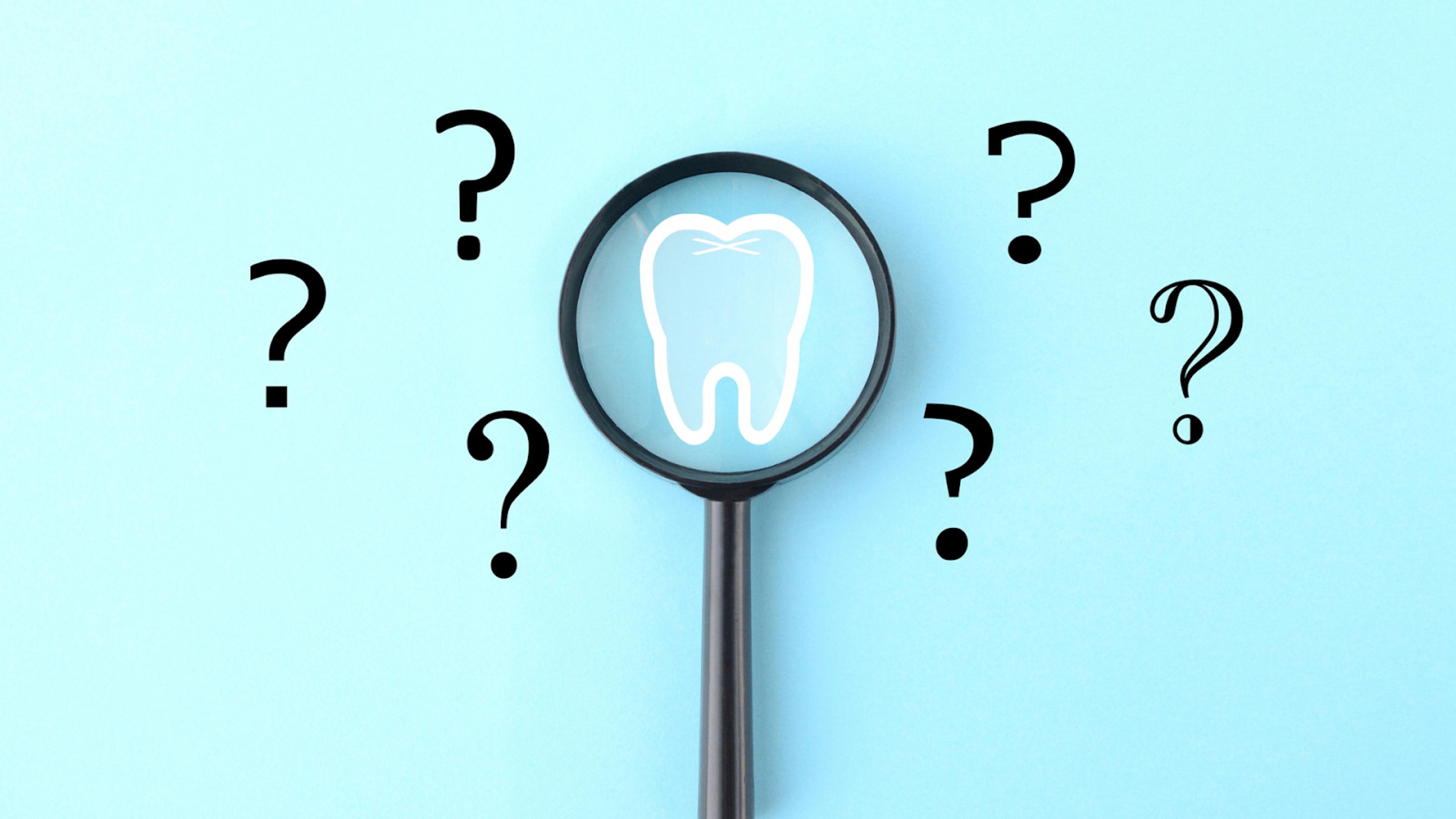Everything You Need to Know About Dental School
Thinking about pursuing a career in dentistry? Our comprehensive guide covers everything you need to know about dental school, from admissions requirements to coursework and clinical experience.
Posted June 13, 2025

Join a free event
Learn from top coaches and industry experts in live, interactive sessions you can join for free.
Table of Contents
Dental school is an important step for aspiring dentists who want to pursue a rewarding career in oral health care. If you're considering dental school, it's essential to understand the basics, the application process, life as a dental student, and how to finance your education. This article will cover all aspects of dental school to provide you with a comprehensive guide.
Overview of the Basics of Dental School
As you embark on your dental school journey, it's crucial to understand the role of a dentist, the duration and structure of dental school, and the different types of dental specialties available. Let's delve into each of these topics.
The Role of a Dentist
Dentists play a vital role in maintaining oral health, diagnosing and treating dental issues, and improving smiles. They perform various procedures, including regular check-ups, cleanings, fillings, root canals, extractions, and more. Dentists also educate patients on dental hygiene practices and provide valuable guidance on maintaining optimal oral health.
In addition to their clinical work, dentists contribute to the advancement of dental research and technology. They stay up-to-date with the latest advancements in dental materials, techniques, and equipment to provide the best possible care to their patients. Many dentists follow guidelines set by the American Dental Association, which helps ensure high standards of care in their practices.
Dentists often collaborate with other healthcare professionals, such as orthodontists, periodontists, and oral surgeons, to ensure comprehensive treatment plans for their patients. These partnerships, combined with their efforts to educate patients about dental hygiene, are essential to promoting overall oral health.
The dental school equips students with the knowledge and skills needed to fulfill this crucial role. Dental school graduates not only gain expertise in clinical procedures but also learn the importance of working alongside dental hygienists to provide a holistic approach to oral healthcare.
Duration and Structure of Dental School
The dental school typically takes four years to complete. The curriculum is structured to provide a strong foundation in dental sciences, clinical skills, and patient care. Students undergo a combination of classroom lectures, laboratory work, and hands-on clinical experience to develop the necessary skills to become competent dentists.
During the first two years of dental school, students focus on learning the basic sciences, such as anatomy, physiology, biochemistry, and dental materials. They also gain knowledge in oral pathology, dental radiology, and pharmacology. In addition to the theoretical knowledge, students also start developing their clinical skills through simulated patient interactions and laboratory exercises.
In the final two years of dental school, students transition to more advanced clinical training. They work directly with patients under the supervision of experienced faculty members. This hands-on experience allows students to apply their knowledge and skills in real-life scenarios, performing procedures such as fillings, extractions, and root canals. Students also have the opportunity to rotate through different dental specialties to gain exposure to various aspects of oral healthcare.
Types of Dental Specialties
After completing dental school, dentists have the option to specialize in various areas of oral healthcare. Some popular specialties include orthodontics, periodontics, pediatric dentistry, endodontics, and oral and maxillofacial surgery. Each specialty requires additional education and training beyond the four-year dental school program.
- Orthodontics focuses on correcting misaligned teeth and jaws, using braces, aligners, and other orthodontic appliances. Periodontics specializes in the prevention, diagnosis, and treatment of gum diseases and the placement of dental implants. Pediatric dentistry focuses on providing dental care to children and adolescents, including preventive care, restorative treatments, and behavior management techniques.
- Endodontics deals with the diagnosis and treatment of dental pulp and root canal-related issues. This specialty aims to preserve natural teeth by addressing infections and inflammation inside the tooth. Endodontists specialize in procedures such as root canals and retreatments of failing root canals, ensuring patients retain their natural teeth whenever possible.
- Periodontics specializes in the prevention, diagnosis, and treatment of gum diseases and the placement of dental implants. Periodontists focus on maintaining the health of the gums and the underlying bone structure that supports the teeth. They address issues such as gingivitis, periodontitis, and bone loss, using advanced techniques to restore and preserve oral health.
- Pediatric Dentistry focuses on providing dental care to children and adolescents. This specialty includes preventive care to maintain oral health, restorative treatments for dental issues, and behavior management techniques tailored to younger patients. A key goal of pediatric dentistry is to create positive dental experiences, fostering lifelong oral health habits and reducing dental anxiety in children.
- Oral and Maxillofacial Surgery involves performing surgical procedures on the mouth, jaws, and face. This includes tooth extractions, dental implants, corrective jaw surgery, and the treatment of oral diseases and injuries. Oral and maxillofacial surgeons often collaborate with other healthcare professionals for complex facial reconstruction and treatment of severe conditions, providing comprehensive care for patients with advanced oral health needs.
Dentists in these specialties often work in private practice, delivering personalized care to patients. Additionally, fields like dental public health specialists focus on community-wide initiatives to improve oral health and address broader public health challenges related to dentistry. Other specialized roles, such as dental anesthesiologists, provide advanced care in pain management and sedation during complex procedures.
Pursuing these specialties often involves residency programs and advanced education through organizations like the American Dental Education Association, which supports dentists in achieving their career goals. Some specialists also engage in dental hygiene programs as part of their training or in collaboration with other dental specialists.
Preparing for Dental School
Getting into dental school requires thorough preparation and a competitive application. Let's explore the necessary pre-dental education, the importance of the Dental Admission Test (DAT), and how to craft a competitive application.
Necessary Pre-Dental Education
Prior to applying to dental school, you must complete a bachelor's degree program with a focus on science courses such as biology, chemistry, and physics. This foundation in the sciences is essential for understanding the complex nature of dental procedures and treatments. Additionally, some dental schools may have specific pre-requisite courses, so it's important to research and fulfill those requirements. These pre-requisite courses may include subjects like anatomy, physiology, microbiology, and biochemistry, which provide a deeper understanding of the human body and its relation to oral health.
During your undergraduate studies, it is also beneficial to gain hands-on experience in the field of dentistry. This can be achieved through shadowing dentists, volunteering at dental clinics, or participating in research projects related to oral health. These experiences not only demonstrate your commitment to the field but also provide valuable insights into the day-to-day responsibilities of a dentist.
Importance of Dental Admission Test (DAT)
The DAT is a standardized exam that assesses the academic abilities and scientific knowledge of aspiring dental students. Achieving a competitive score on the DAT is crucial for dental school admission. The test consists of multiple-choice questions covering various subjects, including biology, general chemistry, organic chemistry, perceptual ability, reading comprehension, and quantitative reasoning.
Preparing for the DAT requires dedication and a structured study plan. Students should devote significant time and effort to prepare for this exam through study guides, practice tests, and review courses. It is recommended to start studying several months in advance to ensure thorough coverage of the test material. Additionally, seeking guidance from dental school advisors or professional test prep services can provide valuable insights and strategies for success.
Besides the academic aspect, the DAT also assesses critical thinking skills and problem-solving abilities. It is important to approach the exam with a calm and focused mindset, as time management and strategic thinking are crucial for maximizing your score. Practice tests can help familiarize you with the format and timing of the exam, allowing you to develop effective test-taking strategies.
For personalized guidance and expert strategies, consider working with top DAT test prep coaches who can help you achieve your dream score on the DAT and secure admission to your desired program.
Crafting a Competitive Application
When applying to dental school, it's important to create a compelling application that showcases your academic achievements, extracurricular activities, volunteer work, and relevant dental experience. Admissions committees seek well-rounded individuals who not only excel academically but also demonstrate a genuine passion for dentistry and a commitment to serving the community.
In addition to maintaining a strong GPA, it is beneficial to participate in extracurricular activities that highlight your leadership skills, teamwork abilities, and dedication to community service. Joining student organizations related to dentistry or healthcare, volunteering at local dental clinics or community events, and participating in research projects can all contribute to a well-rounded application.
Personal statements provide an opportunity to showcase your unique qualities and experiences that have shaped your desire to pursue a career in dentistry. It is important to convey your passion for the field, your personal growth, and how you envision making a positive impact on oral medicine and the health of individuals and communities. Letters of recommendation from professors, general dentists, or mentors who can speak to your character, work ethic, and potential as a dental student are also crucial components of the application.
Finally, if selected for an interview, it is important to prepare thoroughly by researching the dental school and familiarizing yourself with current issues and trends in the field. Dress professionally, demonstrate good communication skills, and convey your genuine interest in the program. The interview provides an opportunity for the admissions committee to assess your interpersonal skills, professionalism, and fit within their dental school community.
Related topic: Navigating Dental School Acceptance Rates: Strategies for Success
Life During Dental School
While dental school can be challenging, it is also an exciting and rewarding experience. Here, we'll explore the typical dental school curriculum, clinical experience and internships, as well as tips for balancing studies and personal life.
Typical Dental School Curriculum
The dental school curriculum is a carefully designed program that covers various dental sciences, clinical techniques, and patient care. Courses often include dental anatomy, oral pathology, dental radiology, periodontics, prosthodontics, and more. Students gain hands-on experience through practical laboratory sessions and clinical rotations.
During the dental anatomy course, students delve into the intricacies of the human oral cavity. They learn about the different types of teeth, their functions, and their relationship to the surrounding structures. Through detailed dissections and examinations, students develop a deep understanding of dental anatomy, which serves as the foundation for their future clinical work.
In the oral pathology course, students study diseases and conditions that affect the oral cavity. They learn to recognize and diagnose various oral health issues, such as oral cancer, periodontal diseases, and dental caries. This knowledge enables them to provide accurate diagnoses and develop effective treatment plans for their patients.
Dental radiology is another crucial aspect of the curriculum. Students learn how to interpret dental X-rays and other imaging techniques to identify dental problems that may not be visible to the naked eye. This skill allows them to detect issues such as impacted teeth, bone abnormalities, and infections, enabling them to provide comprehensive dental care.
Periodontics and prosthodontics courses focus on the diagnosis and treatment of gum diseases and the restoration of missing teeth, respectively. Students learn about various treatment modalities, including scaling and root planing, dental implants, and dentures. Through hands-on practice, they develop the skills necessary to restore oral health and improve patients' quality of life.
Clinical Experience and Internships
Dental school provides ample opportunities for students to gain valuable clinical experience. Under the guidance of experienced faculty, students perform dental procedures on patients, building their confidence and refining their skills. Many dental schools also offer internships and externships, allowing students to gain additional exposure to different dental specialties and real-world dental practices.
During their clinical rotations, students work closely with faculty members and dental professionals to provide comprehensive dental care to patients. They learn to perform procedures such as dental fillings, root canals, extractions, and dental cleanings. This hands-on experience allows them to apply the knowledge gained in the classroom and develop the necessary clinical skills to become competent dentists.
Internships and externships provide students with the opportunity to explore different dental specialties and gain a deeper understanding of the diverse career paths available to them. They may have the chance to work alongside orthodontists, oral surgeons, pediatric dentists, or prosthodontists, among others. This exposure broadens their perspective and helps them make informed decisions about their future dental practice.
Read: A Guide to Clinical Experience for Dental School Applications
Balancing Studies and Personal Life
Dental school can be demanding, but it's important to maintain a healthy work-life balance. Effective time management, prioritization, and self-care are essential. Engaging in hobbies, spending time with loved ones, and taking breaks when needed can help alleviate stress and ensure overall well-being.
Students often find solace in participating in extracurricular activities that allow them to unwind and recharge. Joining dental student organizations, sports teams, or volunteer groups not only provides a much-needed break from the rigorous academic schedule but also fosters a sense of community and camaraderie among classmates.
Furthermore, maintaining a healthy lifestyle is crucial during dental school. Regular exercise, proper nutrition, and sufficient sleep contribute to physical and mental well-being, enabling students to perform at their best academically and clinically. Taking breaks to relax and engage in activities that bring joy and fulfillment helps prevent burnout and promotes a positive mindset.
Lastly, seeking support from friends, family, and mentors can make a significant difference in navigating the challenges of dental school. Having a strong support system provides emotional support, encouragement, and guidance throughout the journey.
Financing Your Dental Education
While dental school is an investment in your future, it's essential to be mindful of the financial aspects. Let's discuss the costs associated with dental school, available scholarships and grants for dental hygiene students, as well as student loans and repayment plans.
Tuition and Other Costs
Attending dental school involves significant financial commitments. Tuition fees can vary depending on the institution and location. In addition to tuition, there are other costs to consider, including textbooks, equipment, supplies, and living expenses. Researching and planning in advance can help you assess the financial impact and make informed decisions.
When it comes to tuition, it's important to note that dental schools often offer different fee structures for in-state and out-of-state students. In-state students may benefit from lower tuition fees, making it more affordable for them to pursue a dental education. However, out-of-state students may have to pay higher tuition fees, which can add to the overall cost of their dental education.
Aside from tuition, dental hygiene students also need to budget for textbooks and study materials. These resources are essential for learning and staying up-to-date with the latest advancements in dentistry. Additionally, dental students may need to invest in specialized equipment, such as dental instruments and laboratory materials, which can further increase their expenses.
Living expenses are another important consideration. Dental hygiene students often need to relocate or live in close proximity to their dental school. This means factoring in the cost of housing, utilities, transportation, and daily living expenses. It's crucial to research the cost of living in the area where your dental school is located to ensure that you can comfortably afford these expenses throughout your education.
Scholarships and Grants for Dental Students
Fortunately, there are scholarship and grant opportunities specifically designed for dental students. These financial aids can help offset some of the costs associated with dental school. Researching these opportunities and applying to as many as possible can increase your chances of receiving assistance.
Many dental schools offer their own scholarships and grants to incoming students. These awards may be based on academic merit, financial need, or a combination of both. It's important to check with the dental schools you are considering to see what scholarship opportunities they offer and what the application requirements are.
In addition to school-specific scholarships, there are also external organizations and foundations that provide financial aid to dental students. These organizations may have specific eligibility criteria, such as being a member of a certain ethnic group, demonstrating a commitment to community service, or pursuing a specific area of dentistry. Exploring these opportunities can open up additional sources of funding for your dental education.
Student Loans and Repayment Plans
If scholarships and grants do not cover the full cost of dental school, student loans are another option. It's important to thoroughly research loan options and understand the terms and conditions before committing. Taking on student loans is a significant financial responsibility, so it's crucial to borrow only what you need and explore options with the lowest interest rates and most favorable repayment terms.
When considering student loans, it's important to be aware of the different types available. Federal student loans, such as Direct Unsubsidized Loans and Grad PLUS Loans, are often more favorable due to their lower interest rates and flexible repayment options. Private student loans are also an option, but they typically come with higher interest rates and may have stricter repayment terms.
After completing dental school, various loan repayment plans, including income-driven repayment, can help make loan repayment more manageable as dentists begin their careers. These plans adjust monthly payments based on income and family size, ensuring that loan repayment remains affordable even if starting salaries are lower initially.
Embarking on your journey through dental school is a significant step towards a fulfilling career. Understanding the basics of dental school, preparing for the application process, navigating life as a dental student, and managing the financial aspects will help you make informed decisions and maximize your chances of success. Good luck on your path to becoming a dentist!
How Experts Can Maximize Your Dental School Success
Top dental school coaches can provide invaluable guidance throughout your dental school journey—from preparing for the DAT to crafting a compelling application and excelling as a student. These professionals offer personalized strategies tailored to your strengths and weaknesses, ensuring you maximize your potential at every stage of the process. By leveraging their expertise, you can gain a competitive edge, boost your confidence, and navigate the challenges of dental school with greater ease and success.
Read next:
- Dental School Vs. Medical School: Which One is Right For You
- Your Guide to the Accelerated Dental Assisting Academy
- Dental Hygienist School: Program & Application Overview
- Dental School Exam Requirements: The Dental Admissions Test (DAT)
- An In-Depth Guide to the Dental School Application Timeline
FAQs
Do I need a bachelor's degree to apply to dental school?
- While a bachelor's degree is not strictly required by all dental schools, it is strongly recommended. Approximately 98% of accepted students have completed a bachelor's degree upon matriculation.
What is the minimum GPA and DAT score required for admission?
- Admission requirements vary by institution. For example, some schools have a minimum GPA requirement of 3.0 and a minimum DAT score of 17. It's important to check the specific requirements of each dental school to which you plan to apply.
Do dental schools accept international students?
- Yes, some dental schools accept international students into their DDS programs. However, international applicants may not be eligible for financial aid or scholarships, so it's essential to verify each school's policy.
Is there a preferred undergraduate major for dental school applicants?
- No specific major is required. While many applicants choose science-related fields, dental schools accept students from diverse academic backgrounds, provided they have completed the necessary prerequisite courses.
How important are extracurricular activities in the dental school application process?
- Extracurricular activities, including community service and leadership roles, are significant factors in the admissions process. Dental schools seek well-rounded candidates who demonstrate motivation, compassion, and the potential to be ethical healthcare providers.
What is the typical class size in dental schools?
- Class sizes vary among dental schools. For instance, some programs may have around 200 students per class, making them among the largest in the country.
Are there accelerated dental programs available?
- Yes, certain institutions offer accelerated dental programs. For example, the University of the Pacific has a unique three-year program, allowing students to complete their dental education in a shorter timeframe.
Browse hundreds of expert coaches
Leland coaches have helped thousands of people achieve their goals. A dedicated mentor can make all the difference.



















